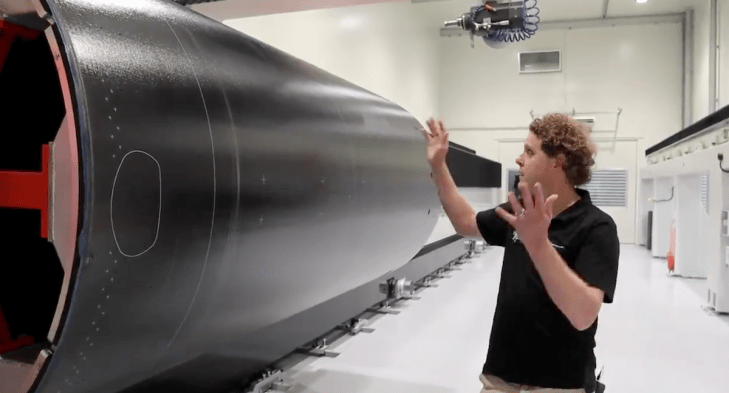Rocket launch startup Rocket Lab is all about building out rapid-response space-launch capabilities, and founder/CEO Peter Beck is showing off its latest advancement in service of that goal: A room-sized manufacturing robot named “Rosie.”
Rosie is tasked with processing the carbon composite components of Rocket Lab’s Electron launch vehicle. That translates to basically getting the rocket flight-ready, and there’s a lot involved in that — it’s a process that normally can take “hundreds of hours,” according to Beck. So how fast can Rosie manage the same task?
“We can produce one launch vehicle in this machine every 12 hours,” Beck says in the video. That includes “every bit of marking, every bit of machining, every bit of drilling,” he adds.
This key new automation tool essentially takes something that was highly bespoke and manual and turns it into something eminently repeatable and expedited, which is a necessary ingredient if Rocket Lab is ever to accomplish its goal of providing high-frequency launches to small satellite customers with very little turnaround time. The company’s New Zealand launch facility recently landed an FAA license that helps sketch out the extent of its ambition, as it’s technically cleared to launch rockets as often as every 72 hours.
In addition to innovations like Rosie, Rocket Lab uses 3D printing for components of its launch vehicle engines that result in single-day turnaround for production, versus weeks using more traditional methods. It’s also now working on an ambitious plan for rocket recovery, which should help further with providing high-frequency launch capabilities as it’ll mean they don’t have to build entirely new launch vehicles for every mission.
